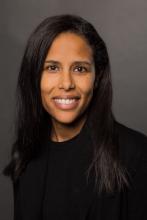
Member Prices
Trauma exposure is a serious public health problem that disproportionately affects Black communities. Structural racism, defined as institutional policies and practices that codify unequal distribution of goods, services, and opportunities, as well as reinforce discriminatory beliefs and values (Bailey et al., 2017), creates social conditions that result in a disproportionate burden of trauma exposure, as well as differences in systems response and services provided. The effects of structural racism on Black youth mental health persist. A new approach is needed to address these mental health inequities that emphasizes mental health professionals addressing how power, privilege, and oppression relate to trauma-related mental health. This webinar focuses on how mental health professionals can reduce trauma-related mental health inequities among Black youth. Specifically, evidence documenting social determinants of trauma exposure and response will be reviewed and cultural humility will be presented as a framework that can facilitate mental health professionals’ active involvement in addressing racism to reduce mental health inequities. An overview of principles of cultural humility were provided. Applied strategies and examples were shared including specific tools and resources.
Learning Objectives:
1) Identify how structural racism impacts trauma exposure and response among Black communities
2) Define core principles of cultural humility that can address mental health inequities
3) Describe applications of cultural humility to address racism and mental health inequities












